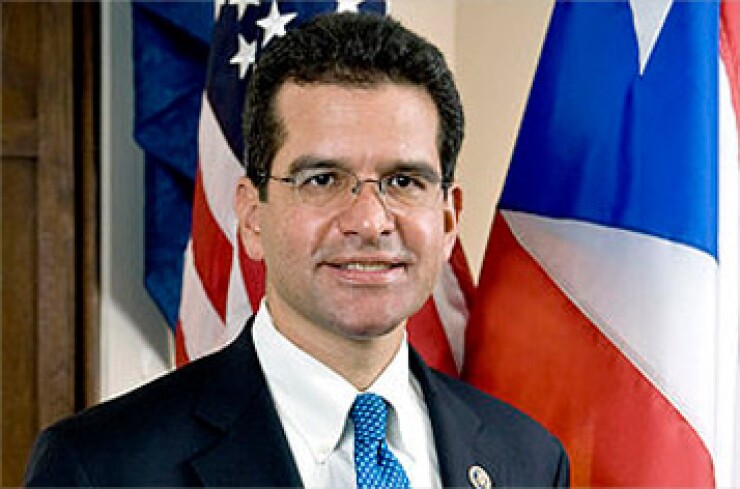
WASHINGTON – Puerto Rico's representative in Congress is asking Gov. Alejandro García Padilla to take steps to comply with a portion of the recently enacted law, PROMESA, that requires cost estimates to be disclosed for any new commonwealth legislation after an oversight board is created.
Resident Commissioner Pedro Pierluisi, D-P.R., said in a letter to the governor and other Puerto Rico officials on Wednesday that "it would be prudent" to take some steps to comply with this section of PROMESA before individuals are named to the seven-member oversight board it creates.
The board will have the power to require balanced budgets and fiscal plans, as well as to file debt restructuring petitions on behalf of the commonwealth and its entities in a federal district court as a last resort, if voluntary negotiations with creditors fail.
Pierluisi said García Padilla should specifically prepare for compliance with Section 204(a) of PROMESA, which details the process for oversight board consideration of local legislative acts. The resident commissioner said the board's power "is limited and well-defined" as long as Puerto Rico's government follows the process.
This section of the new law requires Puerto Rico's governor to send each locally enacted law to the board within seven business days of enactment. The law is protected from oversight board interference as long as the governor also sends a "score" of the law reflecting its potential effect on revenue and expenditures as well as a statement that it does not interfere with the commonwealth's fiscal plan, which will be created in conjunction with guidelines in the legislation. The law's "score" and the statement confirming that it is consistent with the fiscal plan must come from either the Puerto Rico Office of Management and Budget (OGP) or another appropriate government entity.
Given those requirements, Pierluisi suggested the governor's administration establish a formal system where its OGP or other government entity will provide publicly available estimates of the impact of legislation on expenditures and revenues before the oversight board is in place.
"Beyond serving to ensure compliance with Section 204(a), having an independent body produce formal cost estimates of legislation will promote fiscal discipline on the part of the Puerto Rico government and will benefit the Puerto Rico public," Pierluisi said.
Spokespeople for García Padilla could not be reached to provide comment on the resident commissioner's letter.
The board's potential power to prevent enforcement of the commonwealth's laws was one of multiple sticking points for Democrats in Congress who were wary of the board's effect on Puerto Rico's right to self-governance.
Pierluisi explained in the letter that "as long as the Puerto Rico government adheres to the most basic requirements of responsible legislating, it is exceedingly unlikely that any locally enacted law will ever be reviewed by the board, much less reversed."
The board can only prevent enforcement if the governor fails to send the two certifications from the OGP or if the administration certifies the law is inconsistent but never gives a reasonable explanation for why that is the case.





